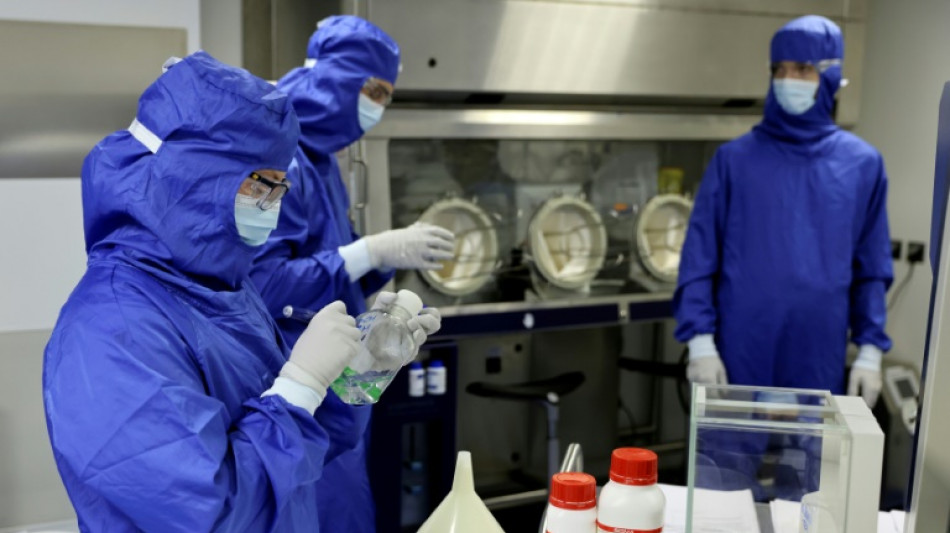
RBGPF
0.1000


When Michel Sadelain began his decades-long quest to genetically modify immune cells to fight cancer, his peers dismissed his ideas as absurd and even his mother grew concerned for his career.
On Thursday, the French and Canadian scientist was announced as a winner of the prestigious Breakthrough Prize for his pioneering work in CAR T-cell therapy, a new form of treatment that has shown exceptional efficacy against blood cancers.
"Over the years, I can't tell you how many times I've heard this won't work, can't work, even if it works it has no future," the 63-year-old told AFP in an interview.
He was passed up for grants, promotions became uncertain, and graduate students steered clear of joining his lab.
"One thing I have to do is to throw a big party with all those who contributed," Sadelain said, laughing. He will split $3 million with American immunologist Carl June, who also led groundbreaking research into the field independently of his co-winner.
The Breakthrough Prize awards "the world's most brilliant minds" in fields including life sciences, fundamental physics and mathematics, styling itself as the Silicon Valley-backed answer to the Nobels. Founding sponsors include Sergey Brin, Priscilla Chan and Mark Zuckerberg.
- Living drugs -
Sadelain studied medicine in Paris, then immunology in Canada, before taking up postdoctoral research at the Massachusetts Institute of Technology in 1989.
At the time, there was great interest in developing vaccines to train the immune system to recognize and destroy cancer cells, in the same way it can be taught to tackle foreign invaders such as bacteria and viruses.
"But I started thinking that perhaps we should learn how to directly instruct the fighters of the immune system, in particular the T-cells," he said, with his early work focused on mice.
After moving to the Memorial Sloan Kettering Cancer Center in New York, Sadelain developed a way to use a disabled virus to genetically reprogram human T-cells, so that they grew claw-like structures called antigen receptors, allowing the T-cells to target specific cancer cells.
Beyond recognizing the cancer, these Chimeric Antigen Receptor (CAR) T-cells, as Sadelain named them, were also given genetic instructions to enter a killing mode and to multiply, growing an army inside the body to eliminate the enemy.
Thanks to the groundwork laid by June and Sadelain, there are now half a dozen US approved CAR-T cell therapies, with hundreds more trials underway.
Patients' own T-cells are collected, modified outside the body, then infused back into the blood, creating a so-called "living drug."
In a trial against multiple myeloma, a cancer that develops in plasma cells, 72 percent of patients responded to treatment, with total disappearance of the disease seen in 28 percent, among whom 65 percent had sustained eradication for 12 months.
- High costs -
The treatment comes with serious side effects -- including in some cases death -- from the release of inflammatory molecules called cytokines. Doctors have learned to recognize and manage this better over time.
Another risk is nervous system impairment, with symptoms such as deep confusion or inability to talk, although these clear up within days.
Sadelain is excited for what the future could hold: from improving the T-cells so they tackle solid cancers, to treating autoimmune conditions such as lupus, to fighting currently intractable infections such as HIV.
One area he acknowledges must improve is the sky high cost, with price tags upwards of $500,000. In the United States, private and government-subsidized insurers pick up most of the tab for those who qualify, as do health systems in Europe.
"Researchers were aghast when we saw what was charged for these very first therapies," he said. "The cost has to come down," he added, something he expects to happen as the pharmaceutical industry improves its processes, and as scientists continue to innovate.
For example, his own lab is preparing to publish a study showing that improvements to CAR-T cells' efficiency vastly reduces the number needed for treatment.
Other researchers are looking at using stem cells to manufacture CAR-T cells, creating a more economical "off the shelf" solution instead of relying on patients' cells. Clinical testing is underway.
L.Kwan--ThChM